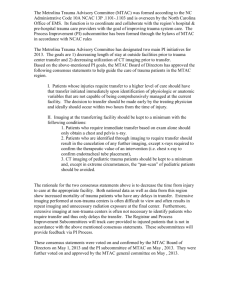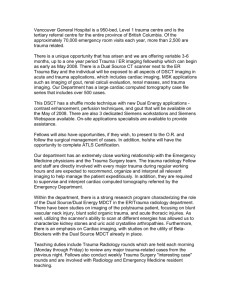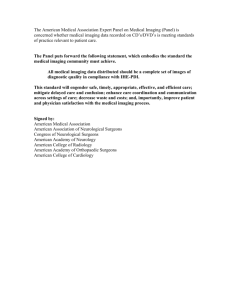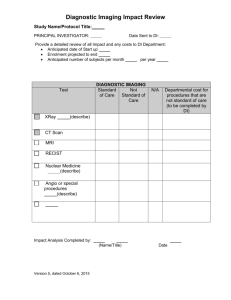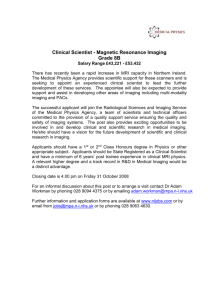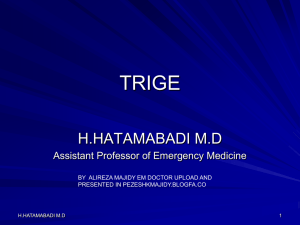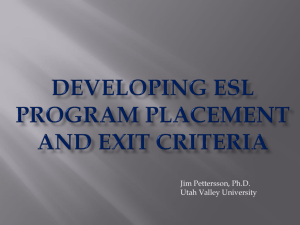The Metrolina Trauma Advisory Committee (MTAC) was formed
advertisement
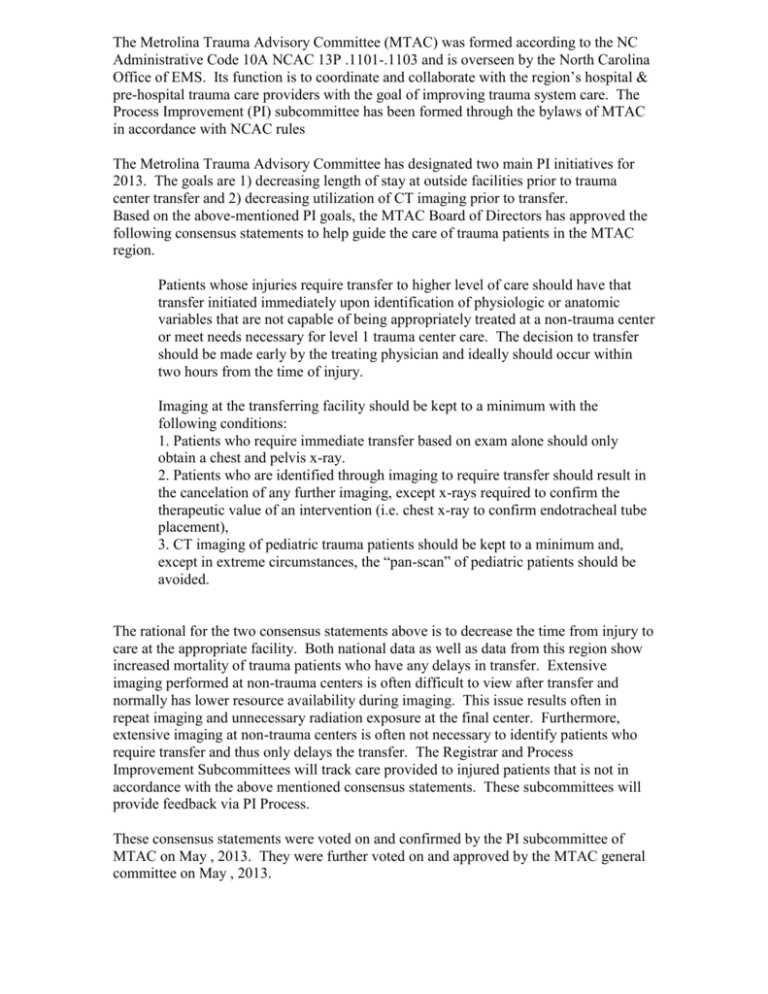
The Metrolina Trauma Advisory Committee (MTAC) was formed according to the NC Administrative Code 10A NCAC 13P .1101-.1103 and is overseen by the North Carolina Office of EMS. Its function is to coordinate and collaborate with the region’s hospital & pre-hospital trauma care providers with the goal of improving trauma system care. The Process Improvement (PI) subcommittee has been formed through the bylaws of MTAC in accordance with NCAC rules The Metrolina Trauma Advisory Committee has designated two main PI initiatives for 2013. The goals are 1) decreasing length of stay at outside facilities prior to trauma center transfer and 2) decreasing utilization of CT imaging prior to transfer. Based on the above-mentioned PI goals, the MTAC Board of Directors has approved the following consensus statements to help guide the care of trauma patients in the MTAC region. Patients whose injuries require transfer to higher level of care should have that transfer initiated immediately upon identification of physiologic or anatomic variables that are not capable of being appropriately treated at a non-trauma center or meet needs necessary for level 1 trauma center care. The decision to transfer should be made early by the treating physician and ideally should occur within two hours from the time of injury. Imaging at the transferring facility should be kept to a minimum with the following conditions: 1. Patients who require immediate transfer based on exam alone should only obtain a chest and pelvis x-ray. 2. Patients who are identified through imaging to require transfer should result in the cancelation of any further imaging, except x-rays required to confirm the therapeutic value of an intervention (i.e. chest x-ray to confirm endotracheal tube placement), 3. CT imaging of pediatric trauma patients should be kept to a minimum and, except in extreme circumstances, the “pan-scan” of pediatric patients should be avoided. The rational for the two consensus statements above is to decrease the time from injury to care at the appropriate facility. Both national data as well as data from this region show increased mortality of trauma patients who have any delays in transfer. Extensive imaging performed at non-trauma centers is often difficult to view after transfer and normally has lower resource availability during imaging. This issue results often in repeat imaging and unnecessary radiation exposure at the final center. Furthermore, extensive imaging at non-trauma centers is often not necessary to identify patients who require transfer and thus only delays the transfer. The Registrar and Process Improvement Subcommittees will track care provided to injured patients that is not in accordance with the above mentioned consensus statements. These subcommittees will provide feedback via PI Process. These consensus statements were voted on and confirmed by the PI subcommittee of MTAC on May , 2013. They were further voted on and approved by the MTAC general committee on May , 2013. MTAC Board of Directors Dr. Peter Fischer Mr. George Ross Dr. David Callaway Dr. Anthony Raspanti Mr. Mike Nichols
